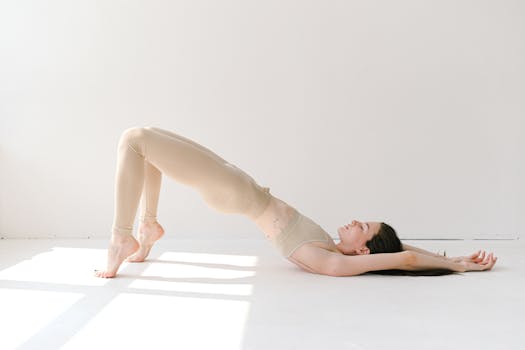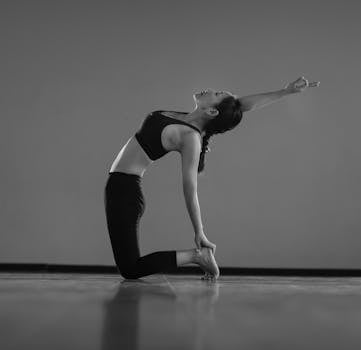
From Mat to Mind: How Yoga and Pilates Transform Your Mental Well-Being
Introduction to Yoga and Pilates

Yoga and Pilates are two popular fitness practices that have been around for decades. While they are often associated with physical benefits such as flexibility, strength, and balance, they also have a profound impact on our mental well-being. As someone who has practiced yoga and Pilates for years, I can attest to the transformative power of these practices. In this article, we’ll explore the ways in which yoga and Pilates can benefit our mental health and well-being.
The Mental Health Benefits of Yoga and Pilates

Yoga and Pilates are both mind-body practices that combine physical movement with deep breathing and meditation techniques. This combination of physical and mental practices has been shown to have a positive impact on our mental health and well-being. Some of the key benefits include:
- Reduced stress and anxiety: Yoga and Pilates have been shown to reduce cortisol levels, blood pressure, and heart rate, all of which are associated with stress and anxiety.
- Improved mood: The physical movement and deep breathing techniques used in yoga and Pilates can help increase the production of neurotransmitters such as serotonin and endorphins, which can help improve our mood and reduce symptoms of depression.
- Increased self-awareness: Yoga and Pilates encourage us to tune into our bodies and minds, increasing our self-awareness and allowing us to better understand our thoughts, feelings, and behaviors.
The Science Behind Yoga and Pilates

So, how exactly do yoga and Pilates have such a profound impact on our mental health and well-being? The answer lies in the way these practices affect our brain and body. When we practice yoga or Pilates, we are engaging in a combination of physical movement, deep breathing, and meditation techniques. This combination of activities has been shown to:
- Activate the parasympathetic nervous system: The parasympathetic nervous system is responsible for promoting relaxation and reducing stress. Yoga and Pilates have been shown to activate this system, leading to a decrease in cortisol levels and an increase in feelings of relaxation and calm.
- Increase grey matter: Studies have shown that regular yoga practice can increase grey matter in areas of the brain associated with attention, emotion regulation, and memory.
- Reduce inflammation: Chronic inflammation is associated with a range of mental health conditions, including depression and anxiety. Yoga and Pilates have been shown to reduce inflammation and promote overall health and well-being.
Getting Started with Yoga and Pilates

If you’re interested in trying yoga or Pilates, there are a few things to keep in mind. First, it’s a good idea to find a qualified instructor or class that suits your needs and goals. You can find classes at local studios, gyms, or online. It’s also a good idea to start slowly and listen to your body. Yoga and Pilates are not competitive practices, and it’s okay to modify or rest when you need to.
In addition to finding a class or instructor, it’s also important to invest in a good yoga mat and any other equipment you may need. A good yoga mat can provide the grip and support you need to practice safely and comfortably. You may also want to consider investing in a block, strap, or other props to help you modify or deepen your practice.
Conclusion

Yoga and Pilates are two powerful practices that can have a profound impact on our mental health and well-being. By combining physical movement with deep breathing and meditation techniques, these practices can help reduce stress and anxiety, improve our mood, and increase our self-awareness. Whether you’re a seasoned practitioner or just starting out, I encourage you to give yoga and Pilates a try. With regular practice, you may find that you’re better equipped to handle life’s challenges and that you’re living a happier, healthier life.




